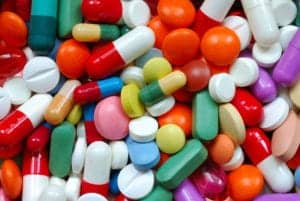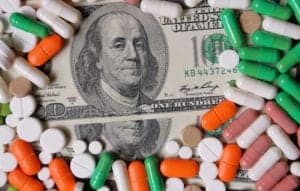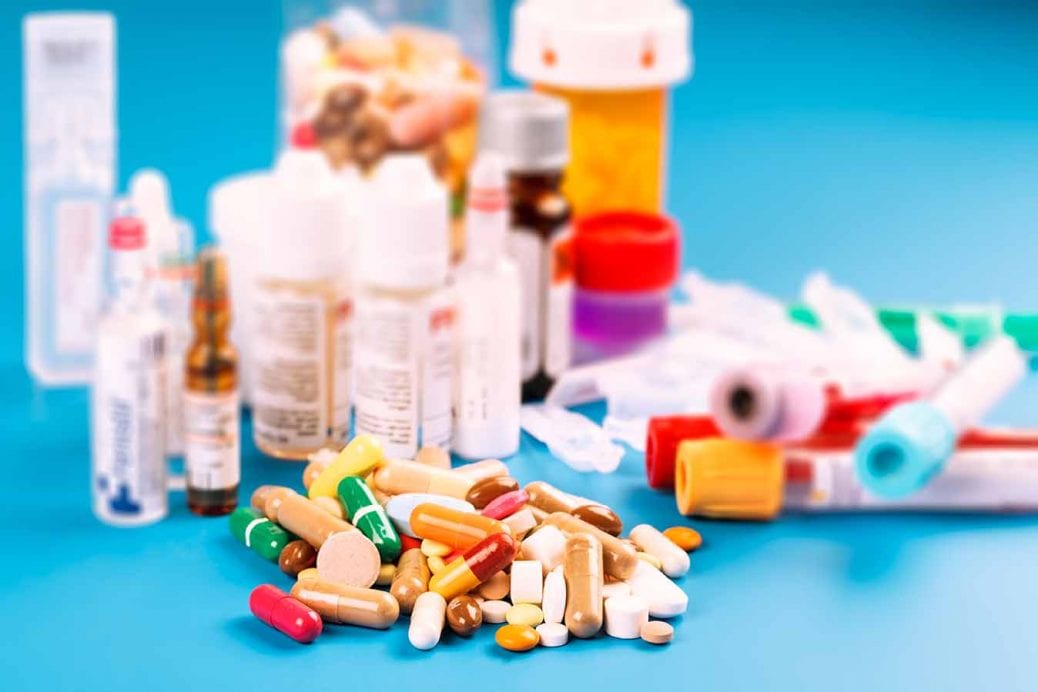2019 update:
Since writing this article, and a similar article for the Life Extension Magazine, it does not appear things have gotten any better and this issue continues to be all but ignored by the major media outlets. What happened to this poor kid, and many others, shows that a serious quality control issues exists in pharma. From a 2019 investigation called When Medicine Makes Patients Sicker:
“Over the same period, 65 drug-making facilities recalled nearly 300 products within 12 months of passing a Food and Drug Administration inspection — as was the case with the stool softener, according to a KHN analysis of recall notices and inspection records kept by the FDA.
Those recalls included more than 39,000 bottles of the HIV drug Atripla laced with “red silicone rubber particulates,” nearly 37,000 generic Abilify tablets that were “superpotent,” and nearly 12,000 boxes of generic Aleve (naproxen) that were actually ibuprofen, according to the recall data…“
So you’re at home watching the news…
 “The reason pharmaceutical drugs are inherently safer then nutritional supplements is due to the fact drugs produced by the pharmaceutical industry are regulated by the FDA” says the talking head on the 6 O clock news. That’s the standard mantra people are told, and unfortunately all too many believe. It’s also false. The general message to consumers is, the extensive regulation by the Food and Drug Administration (FDA) makes products produced by the pharmaceutical industry inherently safer then nutritional supplements, an industry often singled out by the media for attack.
“The reason pharmaceutical drugs are inherently safer then nutritional supplements is due to the fact drugs produced by the pharmaceutical industry are regulated by the FDA” says the talking head on the 6 O clock news. That’s the standard mantra people are told, and unfortunately all too many believe. It’s also false. The general message to consumers is, the extensive regulation by the Food and Drug Administration (FDA) makes products produced by the pharmaceutical industry inherently safer then nutritional supplements, an industry often singled out by the media for attack.
One key point often made during such biased attacks, is the claim the pharmaceutical industry has high standards of quality control – due in large part to FDA regulation – while the supplement industry (due to lack of FDA regulation as the logic goes…) suffers from poor quality and or poor quality control (QC). Unfortunately, the total story would take up a book (and has!) but even giving some insights into how people are manipulated into thinking they are safe using “FDA approved” drugs when the easy-to-find facts show that’s often not the case…
The intent of this article is not to attempt to show the pharmaceutical industry and inherently bad per se, or the “unregulated” supplement industry as perfect, but to let people see the reality that the pharmaceutical industry is rife with quality control issues that so far, have kept below the radar of the average person. But why you ask?
Biased Reporting: The Norm
The pharmaceutical industry often claims the inflated prices of their drugs – especially in the US – are due to the cost of the FDA approval process, research and development (R&D) and other costs. Indeed, drug development costs are extremely high, and getting FDA approval, expensive and a process in need of revamping to decrease costs and get more potentially life-saving drugs to people faster. However, what they fail to disclose for example is the industry spends considerably more on advertising and promotion then they do on research. That is, they have learned that advertising directly to consumers is more profitable then actually doing research. Although numbers vary, some researchers estimates the U.S. pharmaceutical industry spends almost twice as much on promotion as it does on research and development (R&D). Make no mistake, pharmaceutical advertising dollars influences media coverage, both to overstate the dangers of “unregulated” supplements and generally ignore the various discretions made by the pharmaceutical industry that put millions of lives at risk, and cost lives yearly.
We are not talking small change here either; In 2004 the industry spent an estimated $33.5 billion on promotion costs in an increasingly tough economy that media outlets have to compete for. Spending has gone up considerably since that time, with increases in R&D spending not keeping pace. Direct-to-consumer advertising is now big business, as anyone reading this has probably noticed how many TV ads they see, magazine ads, and so forth advising people to “talk to their doctor” regarding what ever drug is being advertised. It does not stop there however as the billions spent on promotion by the pharmaceutical industry even effects what gets published in peer- reviewed science/medical journals that are supposed to be objective publications not influenced by outside sources. One recent study entitled, “Does pharmaceutical advertising affect journal publication about dietary supplements?” examined that issue. The authors extensive research concluded “These data are consistent with the hypothesis that increased pharmaceutical advertising is associated with publishing fewer articles about dietary supplements and publishing more articles with conclusions that dietary supplements are unsafe.” (1)
Quality Control Issues Are Common:
 Hopefully the above section gives people a window into the reality that the reporting on dietary supplements, vs. pharmaceutical drugs, is neither balanced or objective, not by a long stretch. So what of the issues of QC in the pharmaceutical industry? Are there major infractions that get little media attention people should know about? Does FDA regulation make them inherently safer? The fact is, various pharmaceutical companies regularly fail FDA inspections, and worse, are forced to comply – via legal action and the courts – just to follow manufacturing guidelines. In fact, the government, via the FDA, has had to levy ever greater fines on the pharmaceutical industry in recent years, to force them to simply follow existing QC regulations and guidelines. What follows a small sample people may be shocked to learn regarding major QC problems within the pharmaceutical industry:
Hopefully the above section gives people a window into the reality that the reporting on dietary supplements, vs. pharmaceutical drugs, is neither balanced or objective, not by a long stretch. So what of the issues of QC in the pharmaceutical industry? Are there major infractions that get little media attention people should know about? Does FDA regulation make them inherently safer? The fact is, various pharmaceutical companies regularly fail FDA inspections, and worse, are forced to comply – via legal action and the courts – just to follow manufacturing guidelines. In fact, the government, via the FDA, has had to levy ever greater fines on the pharmaceutical industry in recent years, to force them to simply follow existing QC regulations and guidelines. What follows a small sample people may be shocked to learn regarding major QC problems within the pharmaceutical industry:
- The FDA fined Schering-Plough Corp. $500-million for repeatedly failing plant inspections after the FDA set strict quality control terms on four Schering-Plough facilities. FDA inspectors found “significant violations regulations related to facilities, manufacturing, quality assurance, equipment, laboratories and labeling.” If that were not bad enough, the company shipped out asthma inhalers that contained little or no active ingredient (albuterol) leading to perhaps as many as 17 deaths according to the Public Citizen’s Health Research Group. Several massive recalls were the result.
- Once held up as the model of success in bio-tech, Genzyme Corp, “Under the consent decree of permanent injunction,” agreed to correct manufacturing quality violations at one of its facilities and will return $175 million in “unlawful profits” from the sale of products that were made at the plant. According to the FDA, in addition to failing various QC issues, some products were “contaminated with metal, fiber, rubber and glass particles.”
- Abbott Laboratories’ recall of Similac infant formula after insect parts were found in some batches.
- Intravenous drugs from Amgen and Novartis recalled for the presence of glass flakes supposedly caused by a breakdown of materials in the stored vials.
- Johnson & Johnson (J&J) having to recall nearly 200 million bottles of various over-the-counter drugs due to “foul odor.” According to a Reuters Report (Tue May 4th, 2010) FDA “…inspectors found thick dust and grime covering certain equipment, a hole in the ceiling and duct tape-covered pipes at the Fort Washington, Pennsylvania, facility that made 40 products…” with “… raw ingredients contaminated by an unspecified bacteria, a lack of quality control procedures and poor handling of complaints, according to the report dated April 30.” It was so bad, The FDA “…urged consumers to stop using liquid Tylenol, Motrin, Benadryl and Zyrtec for children and infants after a broad recall…” recommending people use generics instead. The company has suspended production at the plant…
“But wait, there’s more!”
As the announcer on the infomercials always says “but wait, there’s more!” If the above does not shock most readers, the following recent case involving GlaxoSmithKline will leave readers wondering if any drugs are truly safe out there. GlaxoSmithKline recently paid $750 million in civil and criminal penalties for “knowingly selling contaminated, adulterated and ineffective drugs”* produced from it’s now closed plant in Puerto Rico. Some of the drugs produced at this plant, and known to be affected were: Paxil, Bactroban, Coreg, Tagamet, and Avandia. As of this writing, the investigation is ongoing and additional civil and criminal charges may still be handed down.
People should be aware, the above examples are by no means an exhaustive list of recent failures of QC by the pharmaceutical industry.
The Pharmaceutical Industry Double standard.
The pharmaceutical industry, via a generally biased and or manipulated media, often claims the above QC issues are rare, and anomalies, but a simple search at the FDA.gov web site and some ‘net searching will show anyone that’s simply not the case, and things are growing worse. The reason may be due to current economic realities forcing drug makers to put QC on the low priority list as they attempt to increase their profits through extensive cost-cutting, by laying people off, using lower cost raw material suppliers of questionable quality, and other factors.
The pharmaceutical industry has quite a double standard for itself. For example, when people look to compounding pharmacies in an attempt to avoid the outrageous profit margins from various brand-name drugs, pharmaceutical companies have claimed compounding pharmacies are potentially less safe due to lacking FDA-mandated quality control standards, yet these very companies often fail adhere to acceptable manufacturing standards themselves. The pharmaceutical industry attempts the same treatment for the supplement industry (claiming supplements to be inherently less safe due to lack of FDA oversight), when again, they often fail to follow good manufacturing practices (GMP) and put lives in danger; which does not include the 106,000+ deaths per year from adverse effects of FDA approved and regulated medications. (2)
Conclusion
Although the FDA appears to have stepped up it’s enforcement of QC issues found in the pharmaceutical industry, the FDA and pharmaceutical industry have a complex, often nepotistic relationship. For example, according to Dr, Marcia Angell – former editor of the New England Journal of Medicine and author of THE TRUTH ABOUT THE DRUG COMPANIES: “The FDA reviews drugs for safety and effectiveness before they are allowed on the market, but drug companies pay large “user fees” in return for quick reviews. That means the agency is beholden to the industry it is supposed to regulate.” This is one of various ways the FDA is “beholden to the industry it is supposed to regulate” with other examples easy to uncover.
The pharmaceutical industry enjoys impressive profits, and profit margins, and pays a kings ransom in lobbying efforts and direct-to-consumer advertising, in an attempt to maintain their monopoly. They accuse compounding pharmacies and the supplement industry – and anyone else who competes with them – of failing to do what they themselves have ignored: paying attention to quality control and stringent manufacturing practices.
Hopefully, the American public will no longer tolerate it, and let law-makers know they are no longer in the dark regarding the pharmaceutical industry’s blatant disregard for their safety.
Sources
(1) Kathi J Kemper, Kaylene L Hood. Does pharmaceutical advertising affect journal publication about dietary supplements?BMC Complementary and Alternative Medicine 2008, 8:11doi:10.1186/1472-6882-8-11
(2) Barbara Starfield, MD, MPH. Medical Errors – A Leading Cause of Death. The Journal of The American Medical Association (2000:284:94)
Additional Sources:
(1) http://www.fda.gov/
(2) http://articles.latimes.com/2002/may/18/business/fi-schering18
(3) http://www.reuters.com/article/idUSTRE64367Z20100504
(4) http://www.nytimes.com/2010/10/27/business/27drug.html
(5) http://www.reuters.com/article/idUSTRE6A95S220101110
* = emphasis mine
Will Brink is the owner of the Brinkzone Blog. Will has over 30 years experience as a respected author, columnist and consultant, to the supplement, fitness, bodybuilding, and weight loss industry and has been extensively published. Will graduated from Harvard University with a concentration in the natural sciences, and is a consultant to major supplement, dairy, and pharmaceutical companies.
His often ground breaking articles can be found in publications such as Lets Live, Muscle Media 2000, MuscleMag International, The Life Extension Magazine, Muscle n Fitness, Inside Karate, Exercise For Men Only, Body International, Power, Oxygen, Penthouse, Women’s World and The Townsend Letter For Doctors.
He’s also been published in peer reviewed journals.
Will is the author of the popular e-books, both accompanied by private members forum access , Bodybuilding Revealed & Fat Loss Revealed.
You can also buy Will’s other books on Amazon, Apple iBook, and Barnes and Noble.







It's very irritating to think that the drug companies are making huge profits and putting out sometimes "questionable" products. At the prices being paid you would think the quality would be unquestionable. It just shows that no matter what "business" your in, greed always takes over. The problem in this case is the cost could be someones life.
I have noticed over the past couple years especially, the huge increase in "drug" commercials on TV and in magazines.
Yes, they now spend far more $$$ trying to convince you (the end user) that you need the drug (Speak to your doctor to see if X drug is right for you") vs focusing on actual R&D, and improving QC standards it would appear. o.0
"Does pharmaceutical advertising affect journal publication about dietary supplements"
That is what pisses me off. It totally messes with the scientific method and asks the question 'can these so-called peer-reviewed journals even be trusted? We rely on these articles, doctors rely on these articles to make informed choices about data, about information, but if the information can't be trusted, I feel that all is lost, ethically
. I remember a case brought by the CSPI about universities' peer review boards being accused of being influenced by drug companies. Naysayers labeled CSPI as being 'alarmist' but it got lawmakers to revamp review boards being able to accept any "gifts" by manufacturers of drugs trying to get a stamp of approval.
Its disgraceful, dishonest and undermines those who are trying to play by the rules. Why would universities and review boards allow this? Money, I would assume.
Money is usually the source of most issues,
Aw, this was a really quality post. In theory I’d like to write like this also – taking time and real effort to make a good article… but what can I say… I procrastinate alot and never seem to get anything done… Regards
thanks
Great share!
Abbott Laboratories, maker of the glucose test strips that diabetics use to monitor their blood sugar, is issuing a recall of up to 359 million of the strips, after concerns that they may present false readings of low blood sugar.
this type of advertising hasn't actually come to Australia…. yet. i was in the states (NYC) for the first time a few months back on holidays and was dumbfounded at the number of drug commercials on the tube, the length of time of the advertising and – wait for it – the bit i loved the best, the warning of the potential side effects. the commercials are all rosy and glowing with soft camera images all showing the the terrific positive effects that can be had only to be offset by the (sometimes horiffic) side effects. what a contradiction in terms!
"caveat emptor" – buyer beware.
good article by the way 🙂
Your wardrobe is definitely not complete really should you haven’t bought one among Monif C.Is classic “Marilyn” convertible robes. The orange at the same time because the red. Oh besides, all with the colours are excellent and in addition given that it might employed in a selection
I’m sorry, but this is rubbish. While the pharmaceutical industry is going to have it’s problems, recalls, etc. (just as the food industry does, the window pane industry, the car industry, etc…..what…does anyone expect perfection?), the big difference is that there exists a process, a set of regulations, oversights, and means by which defective or harmful products can be identified either 1) Before they hit market or 2) After they have hit market and problems arise. The supplement industry has none of that. NONE. I, myself, today, could go out and fill some gelatin capsules with kitty litter, claim that they are amazing new colon cleanse/metabo boosting/ cancer curing Himalayan crystal blessed by Taoist monk shakra aligning muscle builders, slap a label on the bottle and start selling it at 75$ a pop. And who would prove me wrong? What committee, board, inspector (however flawed) might come along to contradict me or do even the most basic peer reviewed double blind study to prove me wrong? The point is, while Pharma has it’s issues (they are out for a profit, yes, and that is going to lead to instances of corruption), *what makes anyone think the supplement/herbal industry is any different? What…they aren’t out to make a profit as well? Please.
‘I’m sorry,’ but you either didn’t really read the article, or you work in pharma, and didn’t like what you read. Your response offered no convincing argument that altered anything wrote above. The supplement industry if loaded with scams, junk, and worthless stuff, and I didn’t say otherwise (you might want to take some time to actually read my other stuff where I regularly take the supplement industry to task) but that does not forgive or some how alter the amazing levels of QC issues in Pharma, as well as other major issues I touch on in this article. Everything I covered is easy to find public record. If you want to trust Pharma to clean up their act, that’s your choice, I simply covered the reality of the current state of Pharma, which can’t be disputed.
I apologise, I might help practically nothing. I believe, you will find the right decision”
Hi there very cool site!! Man .. Excellent .. Superb .. I’ll bookmark your website and take the feeds also?I am happy to find so many helpful info here within the post, we’d like work out more techniques on this regard, thanks for sharing. . . . . .
Es de agradecer este articulo es de los pocos que he encontrado en los buscadores que pienso es informativo
As a pharmacist in our current healthcare system, you are spot on.. This is one of the best articles I’ve read on the subject. On average I get 2-3 drug recall letters per week. Excedrin has been the latest “big” recall. Unfortunately, it will be overshadowed by the billions of dollars manufacturers spend on advertising… Well done Mr. Brink
Thanx. Amazing how the media seems to totally ignore the recalls and QC issues, some of which have even led at actual criminal charges.